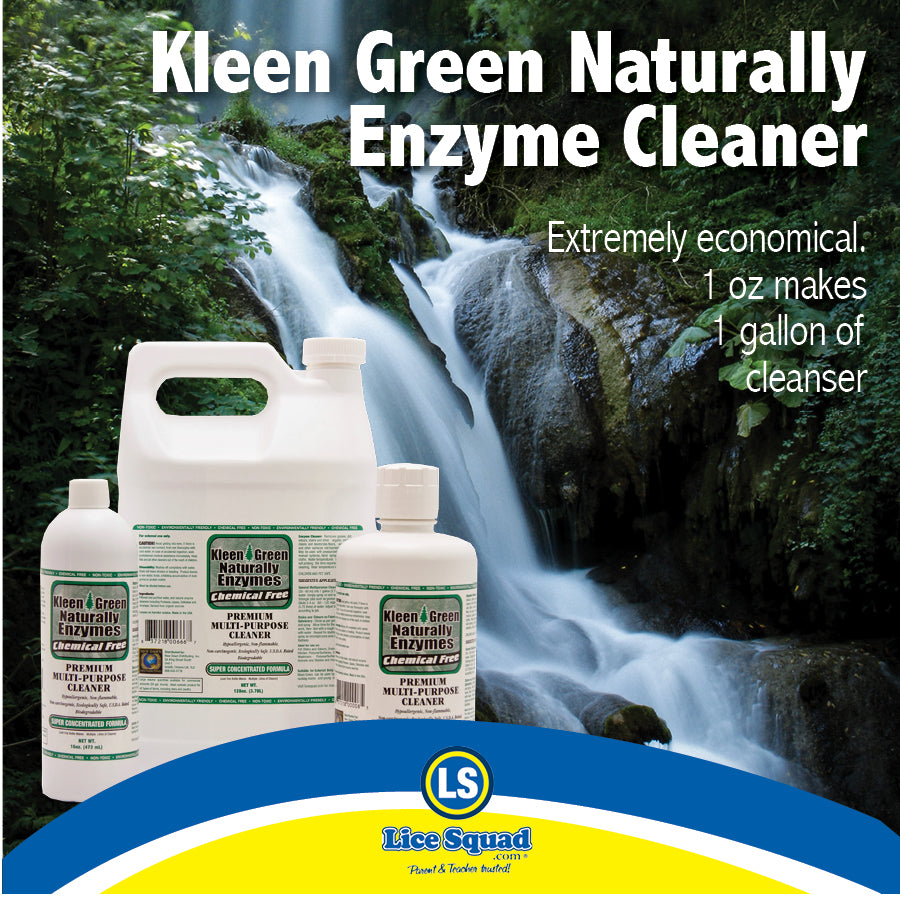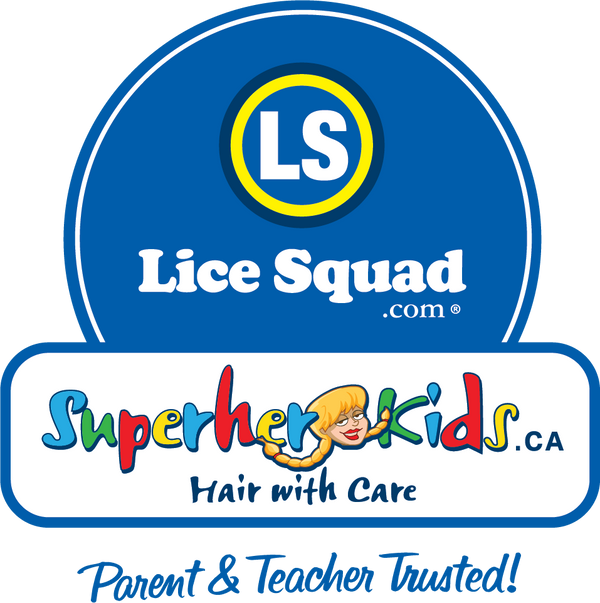
Kleen Green Naturally
Share
KLEEN GREEN NATURALLY Enzymatic Cleanser for Multiple Purposes
A combination of protease, amylase and lipase
www.licesquad.com is the ONLY Canadian distributor
1-888-542-3778
What is an Enzymatic Cleaner?
Enzymatic cleaners are used in healthcare, institutions, homes and other facilities to aid in cleaning and decontamination.
Bacteria clings to surfaces and the tendency then is for all organic material to form a layer over the bacteria thereby trapping the bacteria below this biofilm.
The efficacy of standard cleaners is reduced, because they now must penetrate the organic matter (Biofilm) before they get to the bacteria to remove it.
Enzymatic cleaners contain enzymes, which help to break down soils at a neutral pH (typically pH 6-8). There can be various types of enzymes in enzymatic cleaners, such as proteases, amylases, and lipases which break down various types of soils.
All types of enzymes belong to a class of compounds called proteins. Proteins, and thus enzymes, are complex molecules comprised of amino acids that are joined together by peptide bonds.
With or without an enzyme, the same reaction (soil break down) takes place. But, when using an enzyme, the energy used to break down the soil is lower, and the reaction takes place more quickly. This speeding up and reducing the amount of energy needed for a reaction to take place is known as catalysis, so enzymes act as catalysts for these reactions.
BENEFITS OF USING ENZYMATIC CLEANERS
Enzymatic cleaners have various benefits for the cleaning of multiple surfaces including hands, fabrics, hard surfaces, body and pets.
- Assists in the removal and break down of organic soils
- Effective at low concentrations and lower temperatures than detergents, allowing for smaller, more ergonomic packaging
- Eco-Friendly
- Recent studies have shown that enzymatic cleaners may not only remove but may degrade infectious agents.
- Even detergents with the same surfactants and ingredients without enzymes take at least 10 to 15 times more contact time to achieve an acceptable outcome.
- Rinsing is important after cleaning with enzymatic cleaners to remove adherent soil and residue as enzymes in cleaning detergents keep working until they are washed away.
- Enzymatic cleaners also clean waste pipes and washing machines and contribute to the breakdown of contaminants in the wastewater stream, as well as the target soiled devices.
- Multi-enzymatic detergents are by nature biodegradable and are safe for aquatic life in wastewater stream.
- Multi-enzymatic detergents containing more than one type of enzyme will remove more types of soil like blood, fats, starches, and carbohydrates, than single or dual protease cleaners that only address protein.

